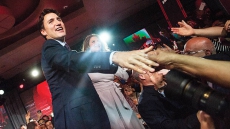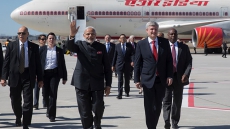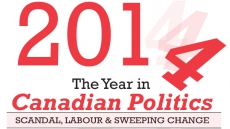The changing face of British Columbia after the result of the recent provincial election
The 2017 British Columbia General Election has been one for the books.
History was made in more ways than one when preliminary results of the May 9 election produced a minority government with the BC Liberals winning 43 seats, one short of the 44 needed for a majority government. With the BC NDP taking 41 and the Green Party winning a record three seats, the outcome wasn’t as simple as just counting votes.

Without a majority government and the balance of power hanging in the hands of the Green Party, negotiations began between the Greens and both the Liberals and NDP. Several weeks after the results rolled in and recounts were conducted, Andrew Weaver, leader of the BC Green Party, announced his party had come to an agreement with John Horgan’s NDP.
“After the election resulted in a minority government, we spent a long time considering what we heard from voters and how we could get the best possible agreement that would put their interests first. I believe we have achieved that with our agreement with the BC NDP,” Weaver told DARPAN. “This is an opportunity for politics to be done differently by collaborating and openly debating legislation to achieve the best possible outcomes for British Columbians.”

The agreement signaled a change in government that would ultimately oust Liberal leader Christy Clark from her position as Premier of the province. The parties outlined the policy initiatives that they intend to pursue as a result of an NDP-lead government propped up by the Greens.
The agreement included, among other details,
- Opposition to the expansion of the Kinder Morgan Trans Mountain pipeline
- Implementation of a carbon tax increase of 5% a tonne per year Referral of the Site C hydroelectric dam project to the BC Utilities Commission to study its economic viability and effects
- An increase to minimum wage
- Improvements to transit, housing supply, health care, poverty reduction, and funding for education

“It is an exciting time for the province of BC. For too long people have felt that the government does not represent the people of the province and they only look out for the wealthy and well-connected. So this is an opportunity to bring politics back to people. We are going to advance transit and child care, and big investments in education and healthcare. I’m looking forward to it,” says Ravi Kahlon, newly-elected
MLA for Delta North.
“In regards to the vote for BC Liberals, says Jas Johal, MLA for Richmond-Queensborough, “the message was sent from downtown Vancouver all the way to Mission and Maple Ridge…it’s throughout the region. We saw the vote go a certain way in Surrey, as well – so we’ve got that, we’ve heard that.”

And so following the NDP/Green Party agreement, it was the Liberals’ turn to present their own revamped policy promises, based on the messages received from across the province. The Throne Speech included similar promises to that of the opposition and acknowledged that it heard the call for change.
“There’s no doubt that I think the jobs and economy message is important,” says Johal, “but British Columbians also said that they need to see some of the dividends from the good work that [the Liberals] have done. And that’s one of the things that I think needs to be the focus – and I think you’re seeing that in the last weeks or so. The premier and the cabinet caucus have heard loud and clear in regards to what British Columbians priorities are and we want to make sure we head in that direction.”

Unfortunately for Clark and her government, after the required four days of debate, the NDP proposed an amendment declaring the legislature had lost confidence in the house. Without the call for a new election from the Lieutenant-Governor Judith Guichon, John Horgan was asked to become the new premier of the province, marking the end of the Liberals’ 16 years in power.
So what does the future of the province look like under the new NDP government?
“Banning big money and introducing reforms to the lobbying industry are significant priorities that we committed to taking action in the 1st sitting of the next session of the new government,” Weaver says. “We have also agreed to hold a referendum on proportional representation in the fall of 2018. Both of those initiatives are crucial in changing the way politics is done in BC and will be major priorities for us.”
While not specifically addressed within the agreement between the NDP and Green parties, housing, transportation and daycare costs have been key concerns all across the province, with affordability a hot topic amongst all voters. All parties agree that changes are inevitable to address these concerns.

“This has definitely been an interesting election,” says Rachna Singh, newly elected MLA for Surrey-Timbers. “During the campaign, I talked to people in my constituency and heard from them how life has become so hard under the BC Liberals. People were looking for change and they voted for a government that works for them. We are ready, willing and prepared to give them the change they voted for and I’m happy to begin working toward that.”
“My priority is to work for my constituents on the things that matter to them,” says Singh. “We need to make life more affordable by addressing the housing crisis and rising costs of Hydro, ICBC, tolls, childcare and Medical Service Premiums.”
Similarly, Johal expressed his party’s belief there is a great need to address affordability going forward. “We have to find ways to make sure that housing remains within the reach of the middle class especially. So that means different types of housing, making sure we maximize our land use, while we still protect our Agricultural Land Reserve (ALR). We want to make sure we can still attract that foreign investment that’s very important for our jobs and our economy but at the same time, we want to make sure that housing is there for everyday Canadians. Increasingly, as we get bigger and bigger and busier and busier, you can see that rapid transit and buses plays a bigger and bigger role. We have to do a better job at that as well…and that's a priority.”
While election results of this sort haven’t been seen for decades, the election was also historic for the Green Party. With three members of the party elected to parliament, this marked the first time in Canada that more than one Green was elected at the federal or provincial level.

“I’m very proud of what we accomplished in this election. I believe now that voters know that the BC Greens can pick up seats and that we don’t “split the vote” we will see even more Green MLAs in the future,” says Weaver.
“What is most exciting is that voter turnout in the three ridings that elected BC Greens was among the highest in the province. This is very exciting for our democracy.”
The people are speaking and the political leaders are listening. With the election producing the first minority government since 1952, British Columbians have already guaranteed that things are going to be different this time around.
Photos: Courtesy BC NDP, Darryl Dyck/ The Canadian Press





